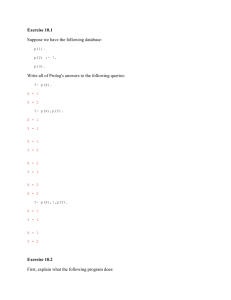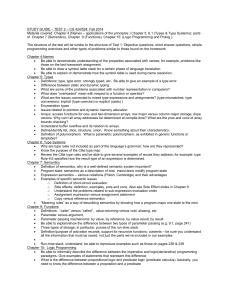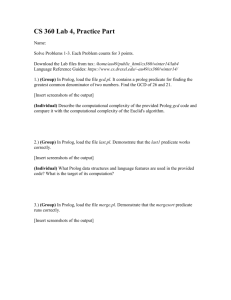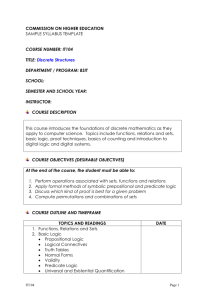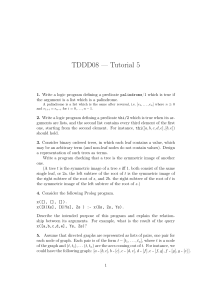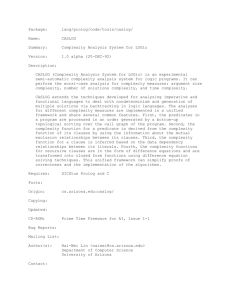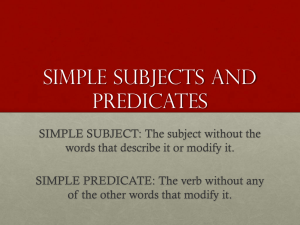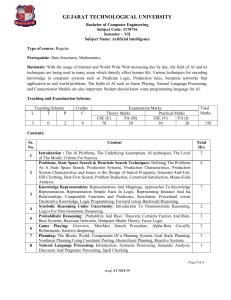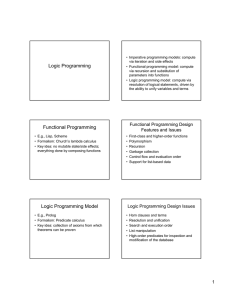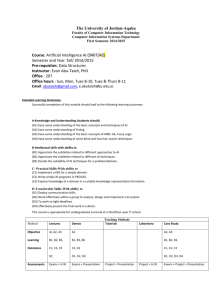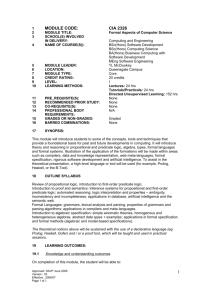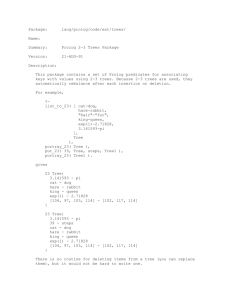CSC 1209 Logic Programming
advertisement
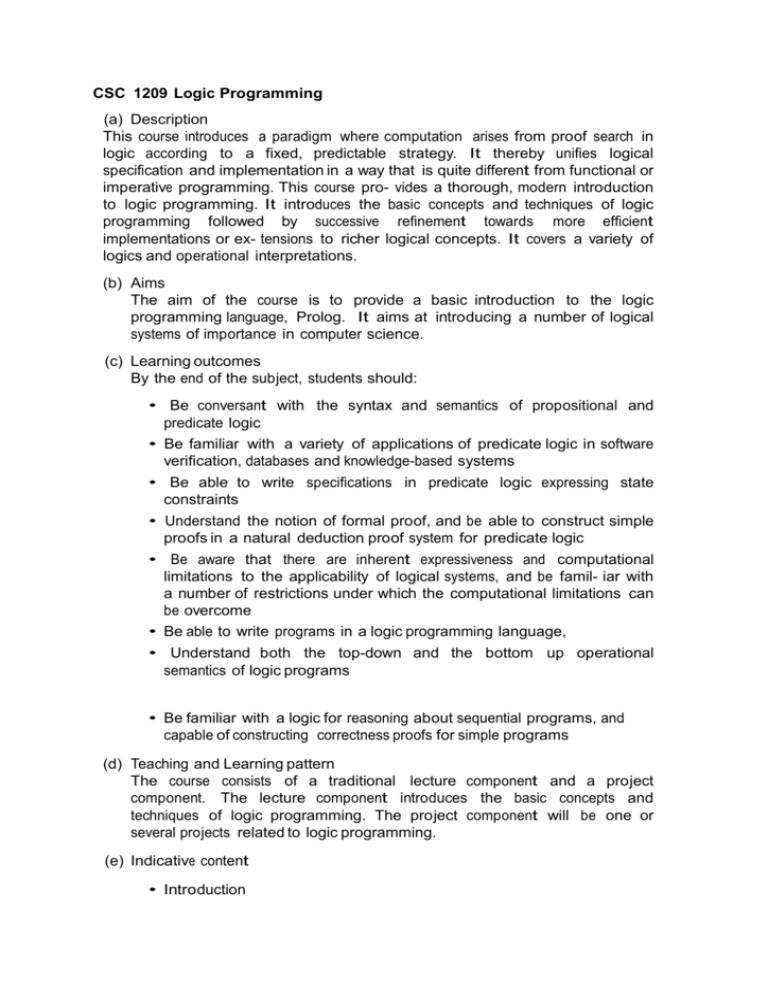
CSC 1209 Logic Programming (a) Description This course introduces a paradigm where computation arises from proof search in logic according to a fixed, predictable strategy. It thereby unifies logical specification and implementation in a way that is quite different from functional or imperative programming. This course pro- vides a thorough, modern introduction to logic programming. It introduces the basic concepts and techniques of logic programming followed by successive refinement towards more efficient implementations or ex- tensions to richer logical concepts. It covers a variety of logics and operational interpretations. (b) Aims The aim of the course is to provide a basic introduction to the logic programming language, Prolog. It aims at introducing a number of logical systems of importance in computer science. (c) Learning outcomes By the end of the subject, students should: • Be conversant with the syntax and semantics of propositional and predicate logic • Be familiar with a variety of applications of predicate logic in software verification, databases and knowledge-based systems • Be able to write specifications in predicate logic expressing state constraints • Understand the notion of formal proof, and be able to construct simple proofs in a natural deduction proof system for predicate logic • Be aware that there are inherent expressiveness and computational limitations to the applicability of logical systems, and be famil- iar with a number of restrictions under which the computational limitations can be overcome • Be able to write programs in a logic programming language, • Understand both the top-down and the bottom up operational semantics of logic programs • Be familiar with a logic for reasoning about sequential programs, and capable of constructing correctness proofs for simple programs (d) Teaching and Learning pattern The course consists of a traditional lecture component and a project component. The lecture component introduces the basic concepts and techniques of logic programming. The project component will be one or several projects related to logic programming. (e) Indicative content • Introduction • Pure logic (relational) programming • The Prolog Language • Programming in Prolog. • Efficient Prolog Programming • Combining Logic Programming, Functional Programming, Higher Order, Objects. • Review of first order predicate logic and resolution. • Fundamental results. • Semantics of logic programs. • Implementation of logic languages and advanced compilation. • Parallelism, concurrency. • Other LP/CLP languages (f ) Assessment method Assessment will be examination (60%) by assignments and/or tests (40%) and written (g) Reading list (i) Logic in Computer Science, Modeling and Reasoning about Sys- tems, M.R. Huth and M.D. Ryan, Cambridge University Press 2000 (ii) SWI Prolog Home Page, http://www.swi-prolog.org/
